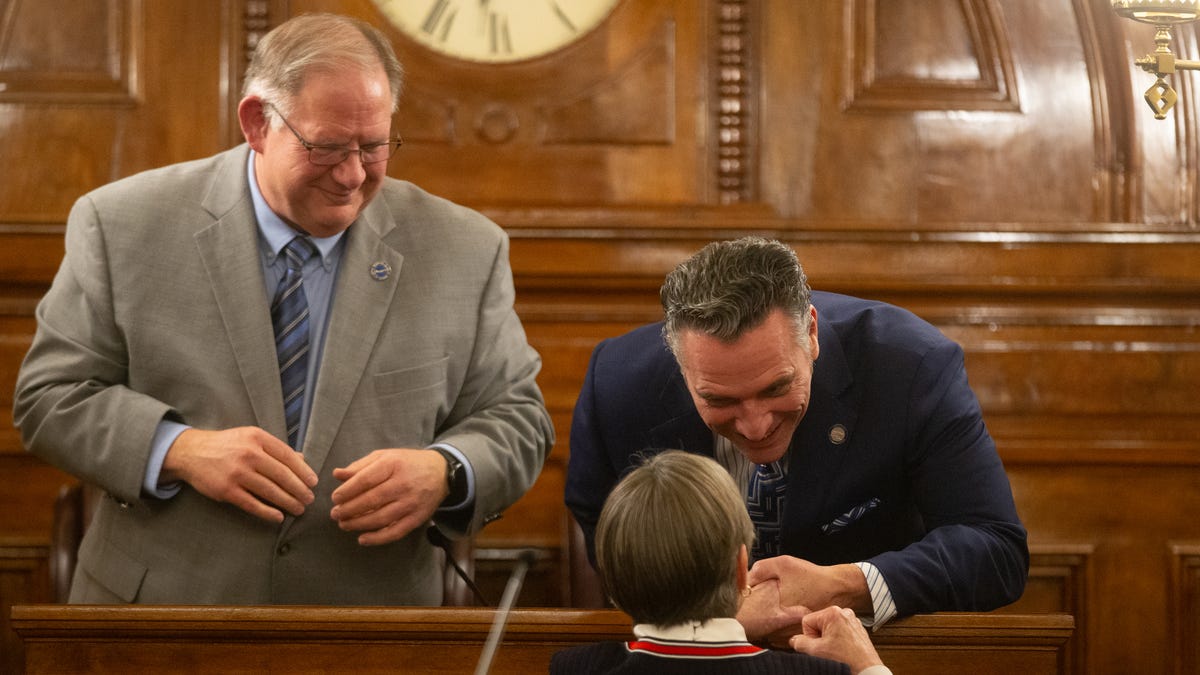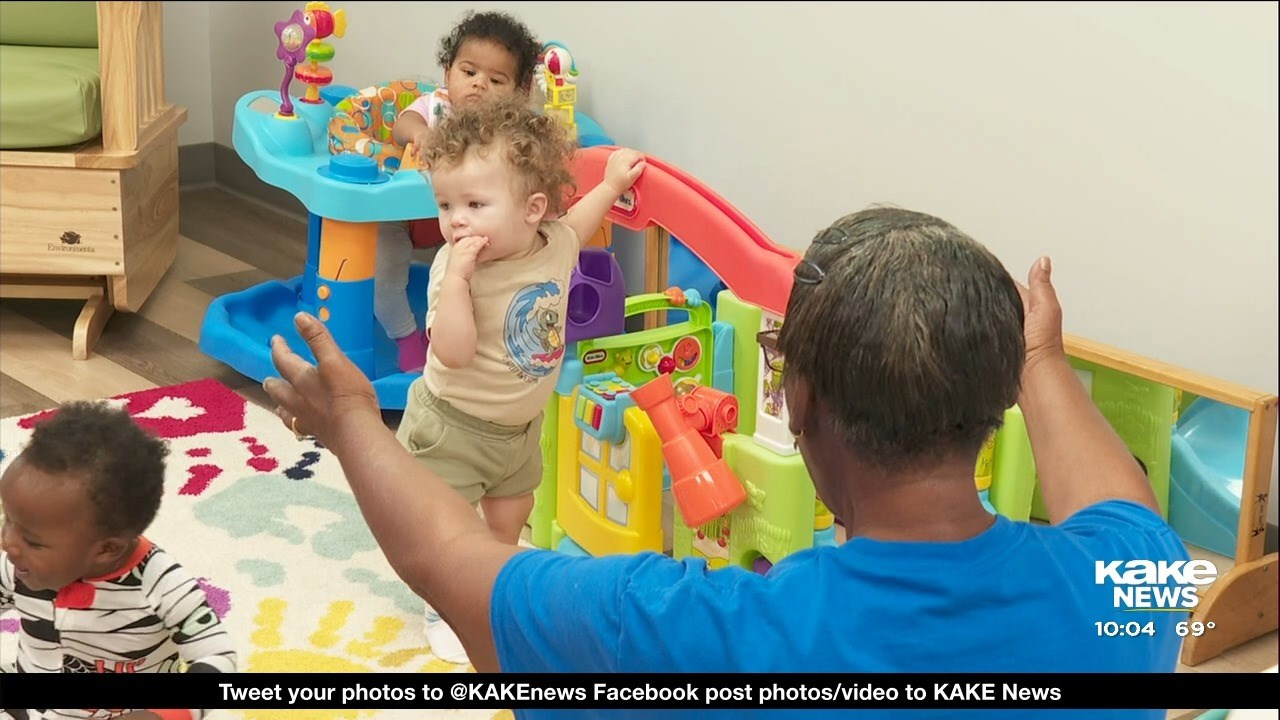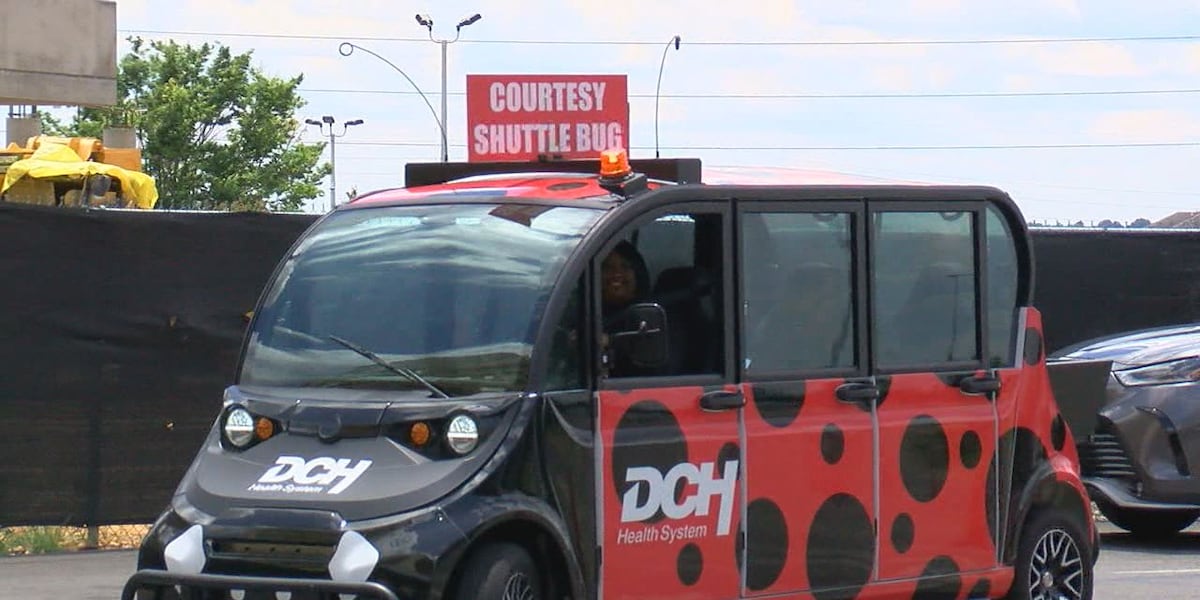Kansas
This fast-tracked disability tax credit bill is the first new Kansas law of 2024

Kansas politicians have enacted their first new law of 2024: a fast-tracked single-subject bill that reinstates an expired tax credit.
Gov. Laura Kelly signed Senate Bill 15 into law on Thursday after it passed the House 117-1 and 34-0. The legislation reinstates and makes changes to a tax credit designed to incentivize employment of Kansans with disabilities.
The tax credit had broad bipartisan support last session, too, but failed because of political logrolling by Republican legislators and the Democratic governor’s veto. That meant the tax credit expired at the end of 2023, prompting lawmakers to fast-track the legislation this session and make it retroactive to the start of 2024.
“Kansans with disabilities deserve a fair wage for the work they perform,” Kelly said in a statement. “I’m signing this bipartisan legislation to create more opportunities for people with disabilities, grow our workforce and ensure every Kansan can work with dignity and respect.”
The income tax credit is for goods and services purchased from qualified businesses that employ disabled workers and pay them at least as much as the minimum wage. The legislation also creates a new matching grant program to help transition sheltered workshop employers toward paying the minimum wage.
“By incentivizing businesses that purchase products from companies with integrated workforces, we are creating more jobs for Kansans with disabilities,” said Rep. Sean Tarwater, R-Stilwell, in a statement via the governor’s office. “This bill also helps those that make below minimum wage to get a pay increase. This spurs local economies across the state as the workforce grows and has additional money in their pockets.”
The minimum wage requirement was added last year following a contentious public hearing at which disability rights advocates took issue with the previous allowance for employers to pay less than $7.25 an hour.
Kansas Commission on Disability Concerns executive director Martha Gabehart said the new law is “a win-win for Kansans with disabilities and businesses.”
“The transition grants hold the opportunity to help providers switch from sheltered work to providing competitive integrated employment, enabling Kansas to join the growing list of states that have equalized the pay for people with disabilities by eliminating subminimum wage,” Gabehart said in a statement via the governor’s office.
Why lawmakers failed to get the tax credit renewed last year
Last session, the tax credit went through the normal legislative process in the House. The commerce committee, which Tarwater chairs, held a public hearing on House Bill 2275 before it was later passed by the full chamber 124-0.
But the Senate never took up the bill.
Instead, it came up in a conference committee, where top legislators on tax policy bundled dozens of separate bills into three packages.
The tax credit became part of the Senate Bill 8 bundle that was debated and voted on by the House on in the wee hours of the last day of regular session without time for legislators to read the legislation. It was passed by the Senate three weeks later.
Some of the pieces in the bundle were controversial, and Kelly vetoed it, saying the Legislature’s bundling “has made it impossible to sort out the bad from the good.” Lawmakers never attempted an override because they had already adjourned for the year, and they didn’t have veto-proof majorities anyway.
That meant the tax credit expired before legislators returned to Topeka for the 2024 session.
This session, instead of the Senate taking up HB 2275, legislators again turned to a conference committee. But this time, they didn’t bundle it with anything else. Instead, they gutted SB 15 to use as a shell for HB 2275, which was tweaked at the request of senators, who had not held a public hearing on the legislation.
Sen. Caryn Tyson, R-Parker, called it “a unique situation.”
“We know the urgency on this is because the program has sunset, and everybody understands that we are trying to get this done as quickly as possible,” Tyson said.
She initially said either the Senate tax or commerce committee could hold a hearing but acquiesced to negotiating in the conference committee.
“I don’t know why we would wait any longer,” Tarwater said.
Jason Alatidd is a Statehouse reporter for the Topeka Capital-Journal. He can be reached by email at jalatidd@gannett.com. Follow him on X @Jason_Alatidd.

Kansas
Kansas City, Kansas hospital to halt labor, delivery services

KANSAS CITY, Kan. (KCTV) – Major changes for Kansas City, Kansas residents amid Providence Medical Center announcement.
The KCK hospital announced it will no longer offer a vital service.
Labor and delivery will be no more starting June 30, 2024.
Providence said it is exploring partnerships with other hospitals in the area in hopes patients can continue services as needed.
The hospital released the following statement:
Providence Medical Center Board of Directors, we are deeply saddened to announce that due to the steady decline in Labor and Delivery patients over the last ten years, Providence Medical Center will no longer be able to offer Labor and Delivery services on our healthcare campus, effective June 30, 2024.
We are exploring partnerships with hospitals and clinics in the Kansas City metropolitan area to assist our community with the transition. We will continue to provide, and expand, gynecological services at 8101 Parallel Parkway, Kansas City, KS to meet patient demand.
We want to thank all our past, and present, hard-working staff and community partners that worked tirelessly to provide Labor and Delivery healthcare services in Wyandotte County and surrounding counties for over 100 years.
ALSO READ: St. Luke’s reunites trauma survivors with medical staff
Copyright 2024 KCTV. All rights reserved.
Kansas
Kansas one of 11 states where child care for 2 is at least double the cost of rent

WICHITA, Kan. (KAKE) – If you think your rent is high, just look at your childcare bill. Child Care Aware of America’s latest report shows, Kansas is one of 11 states where child care is at least twice the cost of rent.
The newest report says the high daycare costs are attributed to parents with two kids. In Wichita, if you send two kids to daycare, prices could range anywhere from $1600 to $2400 a month.
“The price of childcare has to go up because everything else has gone up also. So in order for us to pay our employees a decent wage, we have to go up on our prices,” said Margo Jones, Owner/CEO OF Kids World Childcare Learning Center.
Jones’ facility is licensed for 59 kids. To give them quality care before they start school, Jones says she has to pay her employees at least $11 an hour. So, she has to charge parents more.
Her prices for infants, $1,200 a month, toddlers and 2-year-olds $1,000 a month, 3-year-olds are $900 a month and for 4 and 5-year-olds $840 a month.
“We have to be able to charge enough to pay overhead. Got expenses, taxes, and all that stuff that takes care, you know, we have to put all that into a business as well as paying our employees,” said Jones.
Child Care Aware of America’s latest annual report, released Wednesday shows if you have two kids and live in one of 11 states, including Kansas, or Washington DC, child care costs at least twice as much as rent.
Government assistance helps Kids World with expenses, but it’s still hard for parents to afford daycare.
“If we were paying the sticker price of childcare, and we weren’t getting some of that help. It would be twice what our rent is, even at a more affordable daycare,” said Rebekah Sturgill, a daycare parent.
Sturgill says it’s a decision between growing her career or staying at home to take care of her son, Cash.
“‘We’re already really plugged in with a lot of our jobs. My husband and I are both teachers. So do we have the extra income and then use it towards childcare? Do we give up some of those really precious things that are helping our community and staying home,” said Sturgill.
Jones adds compared to other places in Kansas, living in Wichita is affordable.
“If you try some other places like Overland Park, Kansas City, their prices are even higher, because their wages are higher,” said Jones.
With daycare employees starting out at $11 an hour they have to have credentials in first aid, CPR, and child development just to qualify.
Kansas
New Kansas abortion clinic will open to help meet demand from restrictive neighboring states
A new abortion clinic will open in southeast Kansas this fall, bolstering the state’s role as a regional hub for reproductive health services whose neighbors have severely restricted access since the U.S. Supreme Court overturned Roe v. Wade.
Comprehensive Health of Planned Parenthood Great Plains announced Tuesday that Pittsburg, Kansas, will be home to a new facility providing abortion procedures and pills, as well as pregnancy services, contraception, and testing and treatment for sexually transmitted diseases.
After the Roe reversal, Kansas was the first state where voters weighed in on abortion at the ballot box, resoundingly rejecting a constitutional amendment that could have led to an abortion ban in August 2022.
Since then, the state — which prohibits abortions after 21 weeks of pregnancy — has become a destination for people from more restrictive nearby states seeking abortion.
In March 2023, 44% of abortion patients at Planned Parenthood clinics in Kansas traveled more than 250 miles (402 kilometers), compared with just 1% two years earlier, according to the organization. More than half of abortion patients are now from Texas, and some have come from as far as Florida in recent weeks, said Emily Wales, president and chief executive officer of Comprehensive Health of Planned Parenthood Great Plains.
“You walk across the state line from Missouri to Kansas and you automatically become a freer person who can actually take care of your medical needs in a different way,” Wales said. “We see it on the faces of patients who literally breathe easier when they get into Kansas.”
The abortion landscape across the U.S. has been in flux after the Supreme Court’s June 2022 decision that revoked a constitutional right to abortion nationwide.
New bans or restrictions have taken effect in most Republican-led states, including 14 where abortion is now outlawed in all stages of pregnancy, with some exceptions, and three more where it’s banned after about six weeks of pregnancy – often before women realize they’re pregnant.
For people from those states seeking to end their pregnancies, the main options are either getting abortion pills via telehealth or underground networks, or traveling out of state for abortion pills or procedures.
There were roughly as many in-state residents as out-of-state residents seeking abortions in Kansas in the years before the Supreme Court decision, according to statistics reported to and published by the state’s health department. That’s largely because Kansas City, Kansas, is easily accessible from Missouri, which historically has been limited in providers of abortion services.
In 2022, the figure for out-of-state residents given consent forms more than doubled to 8,475, state data shows.
Pittsburg, Kansas, is more than 100 miles (161 kilometers) south of Kansas City, and 150 miles (241 kilometers) east of Wichita. That means the new clinic location will be hours closer to patients who may be traveling from Missouri, Arkansas and Oklahoma — and even as far as Louisiana or Texas — where the procedure is restricted.
Pittsburg itself has a dearth of providers for contraception and other sexual health services, Wales said, but it has the “added benefit of being so closely located to neighboring states.” The Pittsburg facility will later provide gender-affirming services as well.
Clinics are shifting to accommodate out-of-state demand elsewhere, too. New Mexico has pledged $10 million to a new facility in Las Cruces, near the Texas border; a clinic opened last year in Western Maryland, a few miles from West Virginia; and two new clinics have opened in the southern Illinois city of Carbondale.
Ingrid Duran, director of state legislation for National Right to Life, said it’s not surprising to see new clinics pop up to meet out-of-state demand because of the financial opportunity for providers, she said.
“And it’s not surprising to know that people who want to get abortions would travel out of the state if it’s not being offered there,” she said. She said states should also offer resources that “hopefully persuade abortion-minded women to choose something different.”
Caitlin Myers, an economics professor at Middlebury College who researches abortion policies, said she’s counted 78 abortion facilities opening across the U.S. between May 1, 2022, and April 1 of this year. That number includes 10 moved from another location in the same state, seven that moved across state lines and 61 new providers.
The growth in providers situated near state lines has generated new efforts from those opposed to abortion to restrict the practice, calling it “abortion trafficking.”
A Texas man is trying to force his former partner to say who helped her obtain an out-of-state abortion in a step toward civil enforcement of the Texas abortion ban.
Lawmakers in at least two states have taken aim at people who help minors access abortion without parental consent. Tennessee legislators last month passed a bill that would make it illegal to help minors obtain abortions without parental consent; Republican Gov. Bill Lee has not yet taken action on it. Idaho adopted a similar law last year, though a federal judge has blocked enforcement while its constitutionality is questioned.
Kansas Democratic Gov. Laura Kelly is a strong supporter of abortion rights, but the GOP-controlled Legislature has veto-proof majorities and strong contingents opposed to abortion.
This year, the Legislature passed bills — and later overrode Kelly’s vetoes — for statutes that will require abortion providers to ask patients why they are terminating their pregnancies and report the answers to the state, and that will make it a specific crime to coerce someone into having an abortion.
___
Fingerhut reported from Oakland, New Jersey, and Mulvihill reported from Cherry Hill, New Jersey.
-

 News1 week ago
News1 week agoMan, 75, confesses to killing wife in hospital because he couldn’t afford her care, court documents say
-

 World1 week ago
World1 week agoPentagon chief confirms US pause on weapons shipment to Israel
-

 Politics1 week ago
Politics1 week agoRFK Jr said a worm ate part of his brain and died in his head
-

 World1 week ago
World1 week agoConvicted MEP's expense claims must be published: EU court
-

 Politics1 week ago
Politics1 week agoBiden takes role as bystander on border and campus protests, surrenders the bully pulpit
-

 Politics1 week ago
Politics1 week agoHere's what GOP rebels want from Johnson amid threats to oust him from speakership
-

 World1 week ago
World1 week agoPro-Palestine protests: How some universities reached deals with students
-

 Politics1 week ago
Politics1 week ago'You need to stop': Gov. Noem lashes out during heated interview over book anecdote about killing dog


















